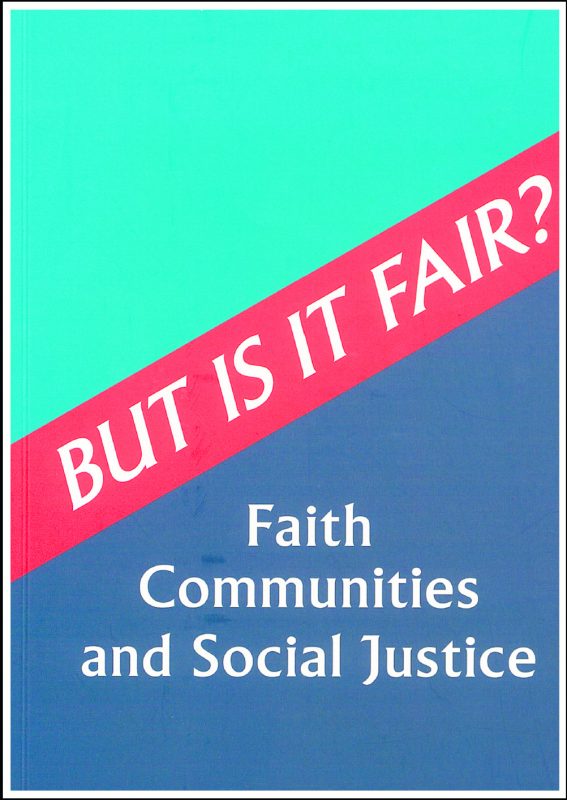BUT IS IT FAIR? — Faith Communities and Social Justice ed. Neil Darragh (Accent Publications, 2014, avail- able from www.accentpublication.co.nz); $30. Reviewed by KEVIN McBRIDE.
 It was perhaps opportune that my reading of Neil Darragh’s recently launched But is it Fair? coincided with my trying to find some direction in a discordant and fragmented election campaign. On the one hand, we had the assurances of the incumbent government that “the country’s in the very best of hands”; on the other, claims that there is a need for a change in direction and policy if rising levels of economic and social inequality are to be turned around to lead us into a more equitable society built on commitment to the common good.
It was perhaps opportune that my reading of Neil Darragh’s recently launched But is it Fair? coincided with my trying to find some direction in a discordant and fragmented election campaign. On the one hand, we had the assurances of the incumbent government that “the country’s in the very best of hands”; on the other, claims that there is a need for a change in direction and policy if rising levels of economic and social inequality are to be turned around to lead us into a more equitable society built on commitment to the common good.
Then there was the tendency of mainstream media to turn a parliamentary election involving a wide range of candidates, parties and policies into a presidential contest, pitting one personality against another. And backing it all were the revelations of Dirty Politics and the circus of Dotcom’s “Moment of Truth”.
Neil Darragh’s book is presented as “a hope-filled book” that reaffirms the right, and indeed the duty, of all citizens, but particularly faith-based communities acting as part of civil society, to ensure that democratic government is really “of the people and by the people” rather than merely “for the people”.
In order to counter any tendency for our system of democracy to enable the operation of a “three-year dictatorship” between elections, it calls upon faith communities to stay engaged and to make sure that their common call to social justice continues to challenge governments of whatever ideology.
Bringing together 30 writers from a variety of religious backgrounds to respond to current social issues under five general headings is a daunting task but, in spite of one or two minor misgivings, I feel that Darragh has succeeded in his aim of challenging us to support faith communities playing a crucial role in a continuing struggle against social injustice.
Part of his success lies in the structure of the book, not unlike that of a medieval mystery play where a prologue and epilogue introduce then review the intervening action. Darragh handles this very well. His introduction provides a road map of what is to follow, the 30 “actors” have their time on stage and we leave with something to think about.
It is again to his credit, that despite differences instyle and organisation, an organic cohesion is managed throughout and my interest was not allowed to flag. Then he steps up again at the finish to close
the discourse with four principles drawn from it that can both “inspire and encourage” readers to “commit their energy and resources into creating a more equal society”. In doing this, he makes it clear that the work already being undertaken by some in faith-based communities needs the support of all if our democracy is to work for the good of all.
Aside from this, Darragh leaves his 30 collaborators to present their case.
Like all readers, I was drawn by my own experience to be more moved
by some issues than by others, but I could not but be impressed by the
people and groups who are given the opportunity here to come to life and
make a case for their cause. And all is held together by a consistent but
understated affi rmation of the part that faith plays in the actions done.
After the electoral dramas were played out “off-stage”, the results left me with a “business as usual” feeling that fairness for all will not
be achieved tomorrow. But this book is indeed a very readable sign that if the 30 groups presented in it have anything to do with it, we can all look forward to a time when a combination of faith and works gives real hope that it will happen.
Kevin McBride works for the Catholic Diocese of Auckland, and Pax Christi Aotearoa-New Zealand.
A readable sign of hope for fairness

Posted in Reviews
Reader Interactions